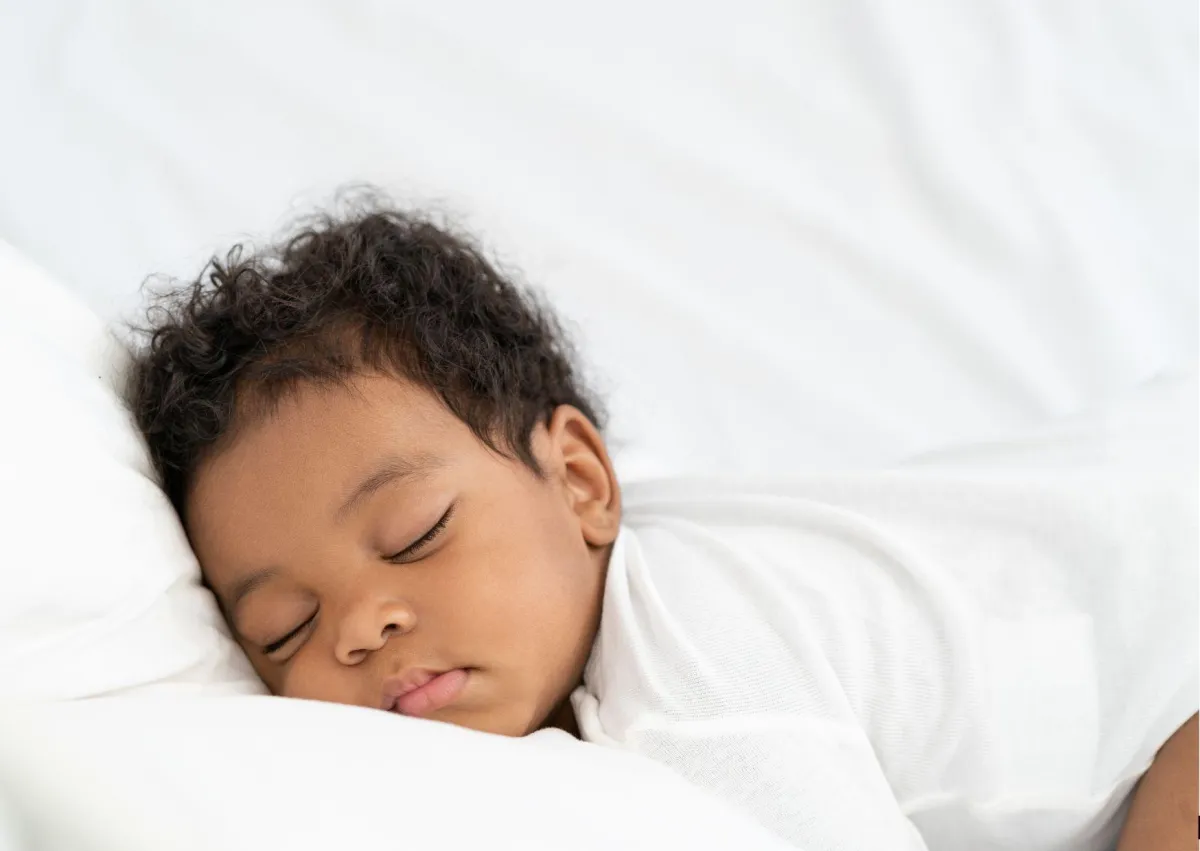
Baby Behavior, Memory, Growth, & Feeding: How Sleep Affects It All

Sleep isn’t just a time for rest—especially for babies. In the first year of life, sleep is one of the most critical processes for brain development, physical growth, and emotional regulation. While it might look like babies are simply "out cold" in their crib, an incredible amount of brain activity is happening behind the scenes. Understanding what occurs during infant sleep can help parents prioritize healthy sleep habits, knowing just how vital this downtime really is.
Brain Growth and Memory Consolidation
One of the most important functions of sleep in infants is neurological development. Studies using EEG (electroencephalogram) scans have shown that during active (REM) sleep, infants' brains are busy forming neural connections, especially in the visual and sensory processing areas of the brain1. In fact, REM sleep makes up about 50% of a newborn’s total sleep time, compared to just 25% in adults2.
This high proportion of REM sleep is critical for memory consolidation. According to a 2020 study published in Nature and Science of Sleep, infants who napped after learning a new task (like recognizing faces or sounds) showed better recall than those who remained awake3. Essentially, sleep helps babies process and store what they've learned.
Hormonal Regulation and Physical Growth
Sleep is also key for physical development. During deep (non-REM) sleep, babies release growth hormone, which contributes to bone and tissue growth, muscle repair, and immune function4. That’s why adequate sleep is not just good for brain health—it’s essential for growing bodies.
In addition, sleep affects the regulation of hormones like cortisol (the stress hormone) and leptin and ghrelin (which influence hunger and satiety). Disrupted sleep patterns in infancy have been associated with higher cortisol levels, which may contribute to fussiness, poor feeding, and even long-term health issues if persistent5.

Emotional Regulation and Mood
Sleep also supports emotional processing. A 2021 longitudinal study from JAMA Pediatrics found that poor sleep in infants was linked to increased risk of behavioral problems and emotional dysregulation by age 36. This underscores the idea that babies aren’t just recharging their bodies during sleep—they’re also developing the capacity to handle the world emotionally.
Sleep Cycles and Maturation
Newborns have shorter and more fragmented sleep cycles—about 50–60 minutes, compared to the 90-minute cycles typical in adults2. Over time, their circadian rhythms mature, especially around 3–4 months of age, when they begin to consolidate more nighttime sleep. This maturation is influenced by environmental cues like light, temperature, and routine.
Sleep Help
Prioritizing healthy sleep routines and environments gives babies the foundation they need for both short-term well-being and long-term development. They need it and so do their parents.
If your baby is not sleeping well at night, first consult your pediatrician to consider any health-related issues. If your baby is healthy, consult a baby sleep consultant for a strategy that will help you quickly and effectively get your baby sleeping peacefully, independently, and for the number of consecutive hours needed.
References:
Grigg-Damberger, M. (2016). Sleep in the newborn. Sleep Medicine Clinics, 11(3), 329–338. ↩
National Sleep Foundation. (2020). How Much Sleep Do Babies Need? ↩ ↩2
Friedrich, M. et al. (2020). Sleep-dependent memory consolidation in infants. Nature and Science of Sleep, 12, 1–9. ↩
Mindell, J. A., & Owens, J. A. (2015). A Clinical Guide to Pediatric Sleep: Diagnosis and Management of Sleep Problems. ↩
Tikotzky, L., et al. (2010). Maternal sleep and depressive symptoms during the early postpartum period. Sleep, 33(5), 593–600. ↩
Sivertsen, B. et al. (2021). Infant sleep and child development. JAMA Pediatrics, 175(6), 543–551. ↩
